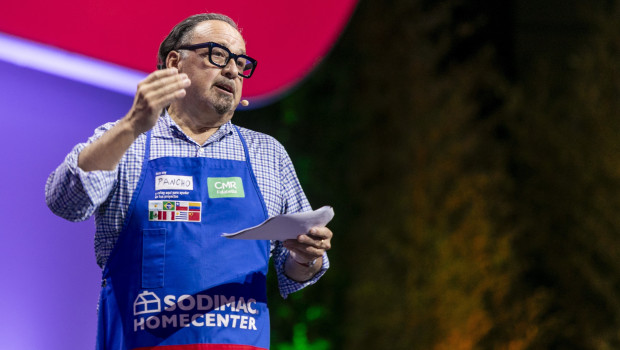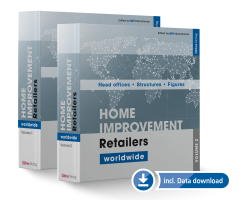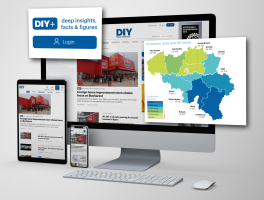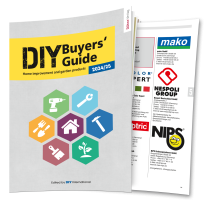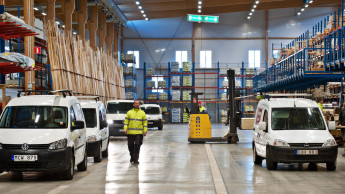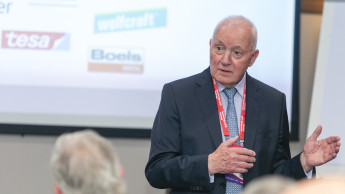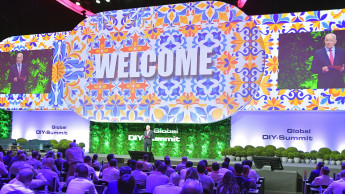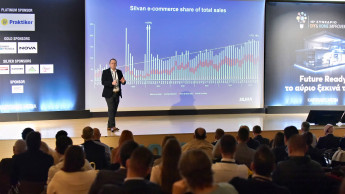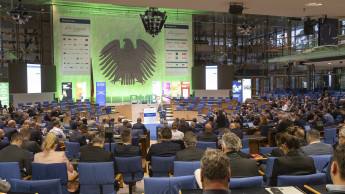The first day of the Global DIY Summit in Lisbon covered a wide range of topics, from issues specific to the industry to broader social questions. In his keynote speech introducing the industry topics, Graham Bell, CEO of British market leader B&Q, spoke about what he understands by "change": the opportunity for "evolution". Rrik Vera, a regular speaker at the summit, explained how important curiosity is: "a superpower". He is rather optimistic about the future of the DIY industry, because people – especially younger people – are looking for real experiences, for things they can still do themselves.
The next speaker came from a completely different industry: Formula 1 Managing Director Mark Gallagher reported on the transformation of this sports business, which has had to cope with repeated crises in the past: a ban on tobacco advertising, the financial crisis, COVID-19 and climate regulations – and on top of that, a formerly male-dominated target group and fan base, which has changed fundamentally. This has forced his industry to innovate technologically and the companies involved to diversify. One example: TV broadcasts of the 24 races worldwide are no longer coordinated on site, but via remote technology from a central studio in London.
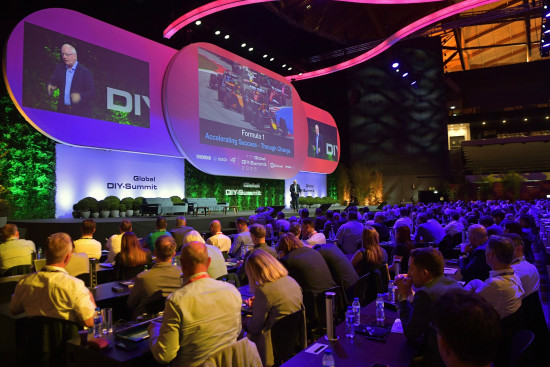
The presentation by Francisco Torres from Sodimac, the home improvement division of the Chilean Falabella Group, was very practical and relevant to the industry. His topic was private labels. At Sodimac, they account for 32 per cent of sales and 46 per cent of margins. "Private labels create differentiation," said Torres. Fans of Sodimac's own brands have a significantly higher shopping basket and ensure footfall in the stores. However, Torres admitted that retailers also need "the authority of established brands". This sometimes creates tension, "just like in a marriage".
Alexander Kremer told the international audience how a German gardening company first entered the garden centre business and then developed its garden centres away from plant supermarkets and towards natural garden centres. "Not a logistically driven concept, but a heart-driven concept," said Kremer, who is the fourth generation to run the company. It was developed in collaboration with students. Among other things, it stipulates that every location is different. But the focus is always on "it's about the plants, it's about nature." The German diy magazine and DIY International have already reported in detail, most recently on the new location in Siegen.
Jamie Pitcairn from Ricardo brought summit participants up to date on Scope 3 and the Make it Zero initiative. He highlighted the urgency of this issue with a comparison: the industry's carbon emissions now amount to around 700 million tonnes per year – equivalent to the emissions of Canada. The task force on the manufacturers' side now has 27 members. To provide further support to retailers and manufacturers, a Scope 3 training academy is now being launched.
The closing session of the first day of the congress, entitled "From Boomers to Zoomers: Bridging the Generational Gap in DIY", was led by Ken Hughes, a well-known speaker on the summit stage, and, for the first time, futurologist Magnus Lindkvist from Sweden. Both chose to give quite emotional presentations. Hughes said that the industry talks too much about products. At its core, it's always about relationships. "Connection is absolutely everything."
Lindkvist, a self-confessed nihilist, sent the audience into the evening with a rather pessimistic outlook – a view based primarily on his analysis of demographic trends. On the subject of home improvement, he said: "This industry is not even in crisis mode. But it will be soon. I am sorry about all this."

 Menü
Menü




